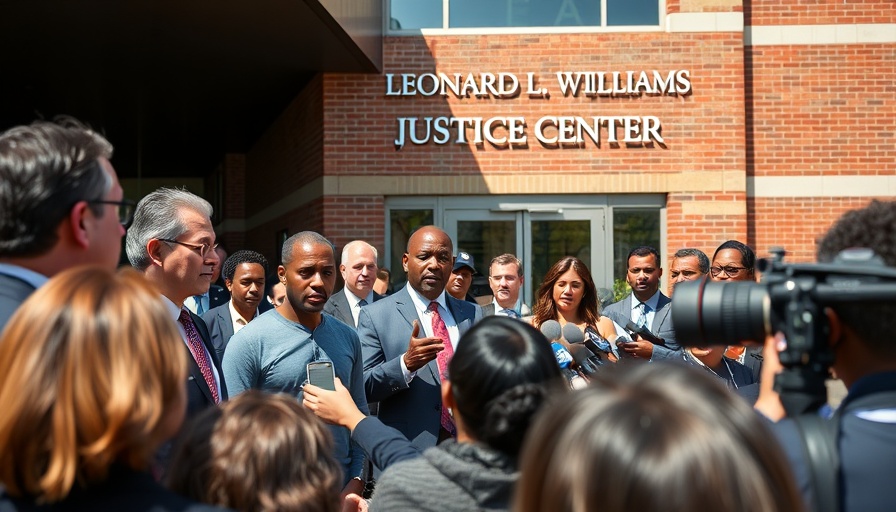
The Complex World of Drug Trafficking and Betrayal
The recent arrest of Jorge Hernández, a longtime DEA informant, highlights the intricate and often murky world of drug trafficking and law enforcement. Over the past two decades, Hernández has been both a key ally in prosecuting high-profile drug figures and now a figure of intrigue himself due to allegations of extortion. This duality of his role underscores the challenges and ethical dilemmas faced by law enforcement agencies in combating drug trafficking while relying on informants who may have their own agendas.
A Glimpse into the Extremes of Drug Informant Operations
Hernández's story is not just one of crime and punishment but also reflects broader issues within the justice system. He played a major role in significant cases that dismantled drug trafficking networks. Yet, allegations have surfaced that he abused his position by posing as a paralegal to manipulate drug traffickers into paying him exorbitant sums for false promises of leniency and favorable treatment. As the DEA relied on Hernández’s connections, it also left the agency vulnerable to manipulation, revealing the thin line between cooperation and exploitation in the world of informants.
Insights into Drug Trafficking Legalities
Hernández's alleged scheme draws attention to the intricacies of legal dealings surrounding drug trafficking. The trafficking of cocaine often involves sophisticated networks that can manipulate legal systems in various countries, including Colombia and the Dominican Republic. The ongoing extradition processes add layers of complexity, as suspected traffickers may find themselves at the mercy of both the U.S. legal system and their own international dealings. Hernández's operation promised relief that he was legally incapable of delivering, showcasing an alarming gap between expectation and reality for individuals caught in the web of international drug law.
Historical Context: The Role of Informants in Law Enforcement
To understand the impact of Hernández’s actions, it’s crucial to reflect on the history of informants in law enforcement. Informants have historically played a critical role in generating actionable intelligence that has led to significant drug busts and prosecutions. However, cases like Hernández’s raise questions about the reliability and motivations of such informants. The DEA's heavy reliance on informants has been both beneficial and detrimental, demonstrating the need for stringent vetting and oversight in these relationships.
Future Predictions on Drug Trafficking and Law Enforcement
The drug trade continuously evolves, influenced by shifting regulations, law enforcement strategies, and international relations. The implications of Hernández’s case could lead to tighter regulations and scrutiny regarding how informants are handled within the DEA and similar organizations. In an era where public scrutiny over law enforcement practices is at an all-time high, the Hernández situation may serve as a catalyst for significant policy changes, promoting transparency and accountability in dealing with informants.
The Ethical Quandaries in Drug Enforcement
This situation raises ethical questions about the treatment of informants and their expectations when cooperating with law enforcement. Hernández’s approach to extorting money from drug traffickers poses a troubling prospect: if trusted informants are financially exploiting the very individuals they are supposed to help apprehend, how can trust be maintained in such relationships? This probe into Hernández’s actions could spur a conversation about best practices for working with informants, ensuring that they cannot take advantage of both law enforcement agencies and criminals alike.
Community Reactions and Social Implications
Local communities are deeply affected by drug trafficking and the resultant law enforcement practices. The Hernández case serves as a stark reminder of the pervasive influence of drug trafficking operations and the potential for corruption even within dedicated law enforcement efforts. Community leaders and local advocates might find new motivation to push for reforms that ensure accountability in how informants are utilized, highlighting the need for ethical practices in policing and community safety enhancements.
Conclusion: The Path Forward for Law Enforcement
As the legal proceedings against Hernández move forward, they will likely provoke a deeper examination of how law enforcement agencies manage informants, particularly those with a complex past like Hernández. The situation highlights the necessity for better oversight, ethical guidelines, and perhaps even reformation of how informants are integrated into law enforcement strategies. As communities demand greater integrity in the war against drugs, the repercussions of Hernández’s alleged extortion may trigger a much-needed reevaluation of policies surrounding informant use in drug enforcement.
Understanding these dynamics is crucial as we continue to combat the challenges posed by drug trafficking and its impact on society. Maintaining vigilance and accountability could lead to more effective and just policing strategies in the future.
 Add Row
Add Row  Add
Add 



Write A Comment